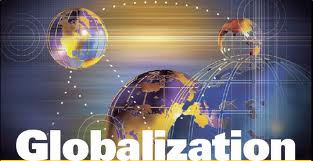Well it certainly has not been ‘the best of times’ – particularly not if you’ve been reading the international pundits. And indeed there is a lot of tension, strife and conflict in the international system whether in the Middle East, or in Eastern Europe or in Asia in the South China and East China Seas. No matter where you look it seems you can find these nasty conflicts.
So it was particularly shocking when Maureen Dowd’s Sunday NYT column was headlined “Is it WWIII or Just Twitter?” There Dowd reminded us of even President Obama’s recognition of chaotic times:
If you watch the nightly news,” the president said, “it feels like the world is falling apart.
And as to whether it is WWIII or not, Dowd suggests that Margaret McMillan the Oxford and University of Toronto scholar may have it right:
She predicted that instead of World War III, “The 21st century will be a series of low grade, very nasty wars that will go on and on without clear outcomes, doing dreadful things to any civilians in their paths.”
So I suppose one of the best commentators on international order, Philip Stephens of the FT has had a recent piece that if you weren’t depressed before, would certainly put you in a rather bad frame of mind after. Initially targeting Russian-EU-US action he concluded that the actions – that is sanctions – the US and the EU have imposed to punish Russia for grabbing Crimea and possibly swaths of Eastern Ukraine have the consequence of ‘killing the golden goose’:
By punishing Russia economically, the US and Europe are undermining the open international system. Economics, this cast of mind says, must be held apart from the vicissitudes of political quarrels. … Sanctions against Ukraine, though, fit a bigger picture of the unravelling of globalisation since the financial crash of 2008.
Well then if not sanctions, what? Well Stephens doesn’t exactly tackle this question but like others that have focused on the ‘return of geopolitics’ the analysis has turned to US leadership. As Stephens suggests:
They [critics] testify to a profounds reversal in US attitudes. Washington’s steady retreat from global engagement reaches beyond Barack Obama’s ordinance that the US stop doing “stupid stuff”. The architect of the present era of globalisation is no longer willing to be its guarantor.
It would seem, not unreasonably, that Stephens has adopted a view – strongly advocated by many contemporary international relations specialists – that international order can or must only be built on hegemonic leadership (I shall reserve a future time to examine a recent book by international relations specialists, edited by John Ikenberry, that look back to Robert Gilpin – the international relations father of hegemonic stability theory and change). So Stephens using such a foundation declares:
Globalisation needs an enforcer – a hegemon, a concert of power or global governance arrangements sufficient to make sure the rules are fairly applied.
Now that particular quote suggests that his thinking on leadership may in fact reach beyond a single hegemon. So let’s hold that idea for further examination elsewhere.
We do know that Stephens takes the position that you cannot have an economic order without at least a political superstructure. And in the face, apparently, of the decline in US leadership globalisation appears to Stephens to be in retreat. What does Stephens look to confirm his conclusion.
Well, among other things, he examines the institutional structure of trade. As he puts it, “the open trading system is fragmenting.” And he points to the failure of the WTO and the rise of regional coalitions — the TPP, or Trans-Pacific Partnership and the TTIP the Transatlantic Trade and Investment Pact. Well, first these are potential mega-regional arrangements and are not really captured by the notion of a regional agreement. These are super agreements. His other reference to South-South trade and then apparently the BRICS bank doesn’t really suggest much about fragmentation. The BRICS bank is hardly a real challenge though I would say possibly that the Asia Infrastructure Investment Bank, AIIB backed by China, may prove to be a real challenge but not to the global system but perhaps to the Japanese dominated regional Asia Development Bank, ADB. But Stephens doesn’t go there.
Next global trade and investment may not be as robust as before the 2008 financial crisis, but there is little presumption of a secular decline. Global trade and investment, built on global supply chains, appears to remain strong, no matter the current blockages at the WTO – read that as India – and these supply chaicontinue to tie parts of Europe and the United States with Asia including China, Japan, Korea, Taiwan and others.
There also seems to be a too easy conflation between globalisation and multilateralism. So Stephens argues:
Much as the south has prospered within the old rules – China’s admission to the World Trade Organisation has been the biggest geopolitical event so far of the present century – yet the new powers show scant enthusiasm for multilateralism. The old order is widely seen as an instrument of US hegemony.
This just lacks clarity. Are we talking about globalization and the major economic flows, or are we talking about the political ordering institutions. It s hard to say. It does seem to me that Stephens’s declaration is premature. Russia was barely integrated into the global economy – without oil and gas – it wouldn’t be at all. Indeed Russia has barely been part of WTO. While globalization has been slowed – it is because of the global financial crisis – and Stephens does identify this. But Russia makes little difference.
Globalization is all about the flows; and we shall have see whether we are in retreat. Global governance is all about the institutions. It may be that political structures, the rules norms and prohibitions require leadership. But it may not require the hegemony we had grown used to.
Let’s look further at this.
Image Credit: ohthatstiana.wordpress.com


